PROVINCETOWN — When I checked the weather forecast the night before the 38th annual Swim for Life, I saw that it would be in the 70s — beautiful weather for a 1.2-mile September swim. I should have paid more attention to the icon just above temperature: three curling lines. Wind.
The next morning, I rushed to get some calories in my body, remembering “carbo loading.” After a banana, cereal, and a glass of iced coffee, I was off to Provincetown.
At the registration area on Johnson Street, some swimmers were already lining up for the Funk Bus to transport them to the race’s start in front of the Breakwater Hotel. Volunteers promptly swept me through a series of tasks: receiving a swim cap; marking my number, 358, on my forearm; picking up my wetsuit; and checking my belongings. Soon, still waking up, I was on a purple Funk Bus heading east down Bradford Street.
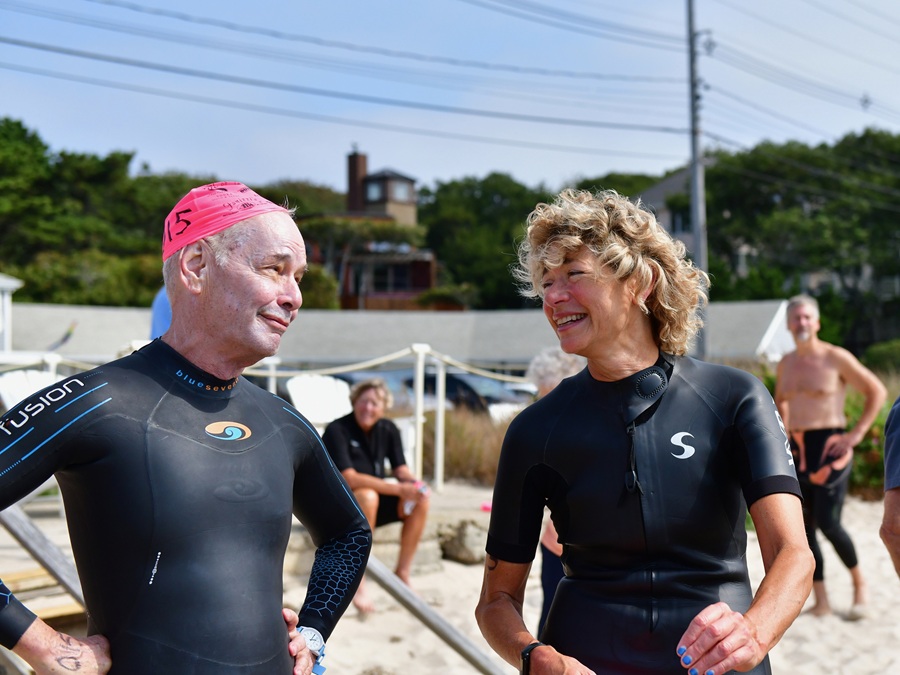
Two women to my left discussed the threat of dangerous marine life, concluding that sharks were of minimal risk but jellyfish could be hazardous. To my right, a group discussed whether swimmers were supposed to go to the right or the left of the buoys. There was no clear verdict. I reread a hand-out asking swimmers not to apply wax to their bodies before boarding the Funk Bus. I started to wonder what exactly I had gotten myself into.
Then the bus turned onto the end of Commercial Street and Cape Cod Bay came into view. Everyone seemed to draw a collective deep breath. The water was a series of dark blue peaks and valleys, converging, colliding, and then tumbling into the shore.
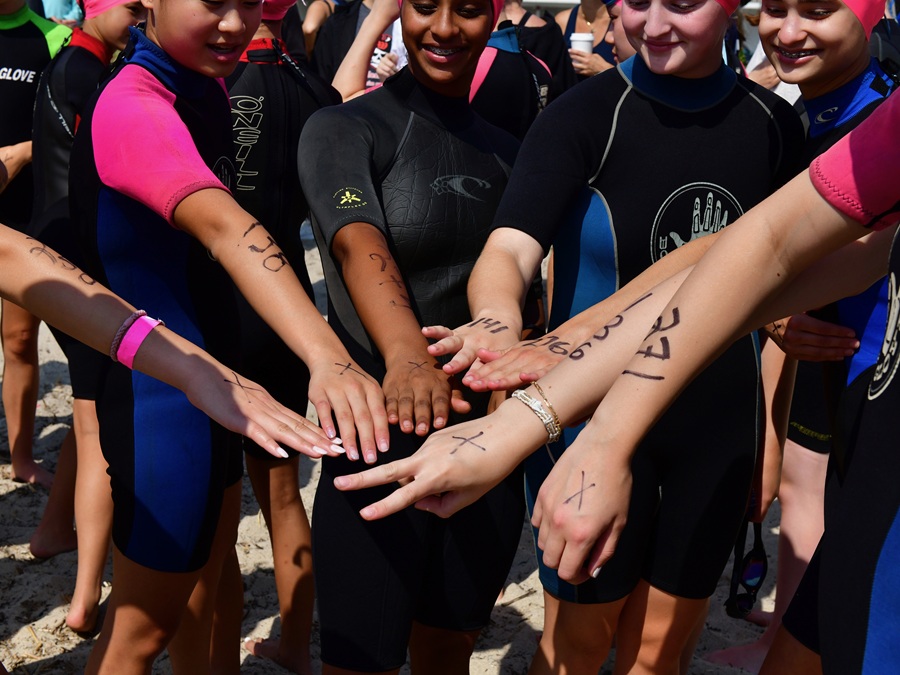
Swimmers started their pregame routines on the beach. Some circled up and chatted with friends. Others stared into space and twiddled their goggles and caps. One set of older athletes broke out in squats, stretches, and arm circles. I overheard at least three people mention their triathlon experiences. Two kayakers capsized near shore after a wave broadsided them. I walked away from the crowd and lay down on the beach for a while.
After a half-hour delay, our onshore leader, Jay Critchley, appeared, waving a large red flag. What that flag signified, I’m not sure, but I followed some experienced-looking participants into the water, which had been turned black by a tangle of seaweed. In some places, a multi-colored film glistened on the water’s surface.
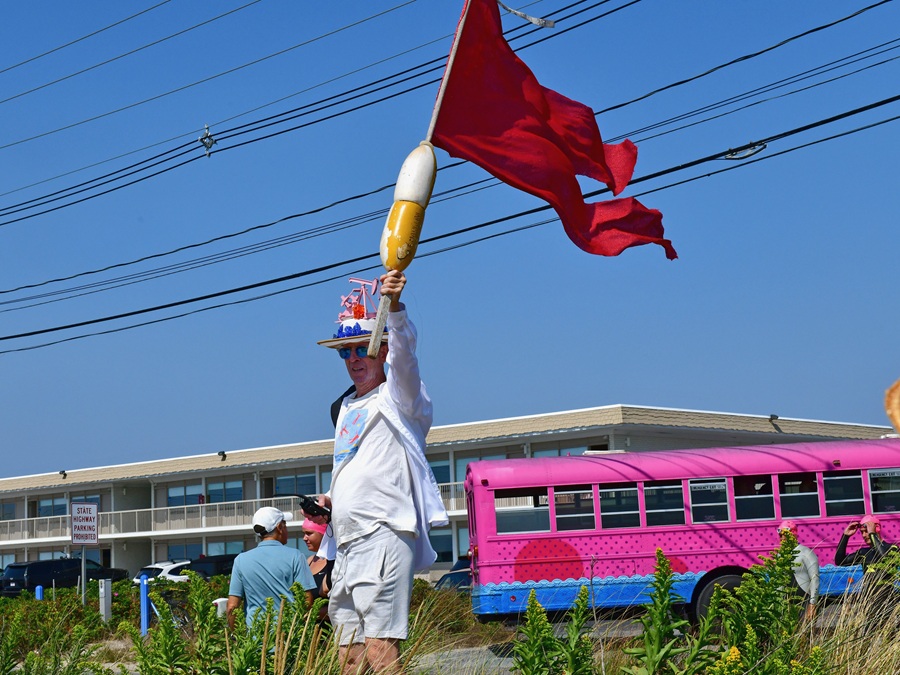
“Hope is contagious,” Critchley later told the Independent he’d said in his speech to those gathered. I didn’t hear him, but I waded in, stomping through the dead plant matter and avoiding the oily sheen. I dunked my head under and then floated momentarily. When I saw people aggressively stroking toward town, I guessed that we had started.
Almost immediately, I realized that swimming in waves was going to be more challenging than I’d anticipated. At some point, while turning my head to breathe mid-stroke, a wave broke over me. I came up and a swimmer passing by called to see if I was all right.
“Yeah, I’m fine,” I said.
“It’s intense,” he said. “I’m used to lake swimming. I can’t even get into my stroke out here. I keep getting a face full of water.”
“Same,” I said, as I coughed up the last of the water, which left a briny taste in the back of my throat.
“Good luck,” he said, swimming on.
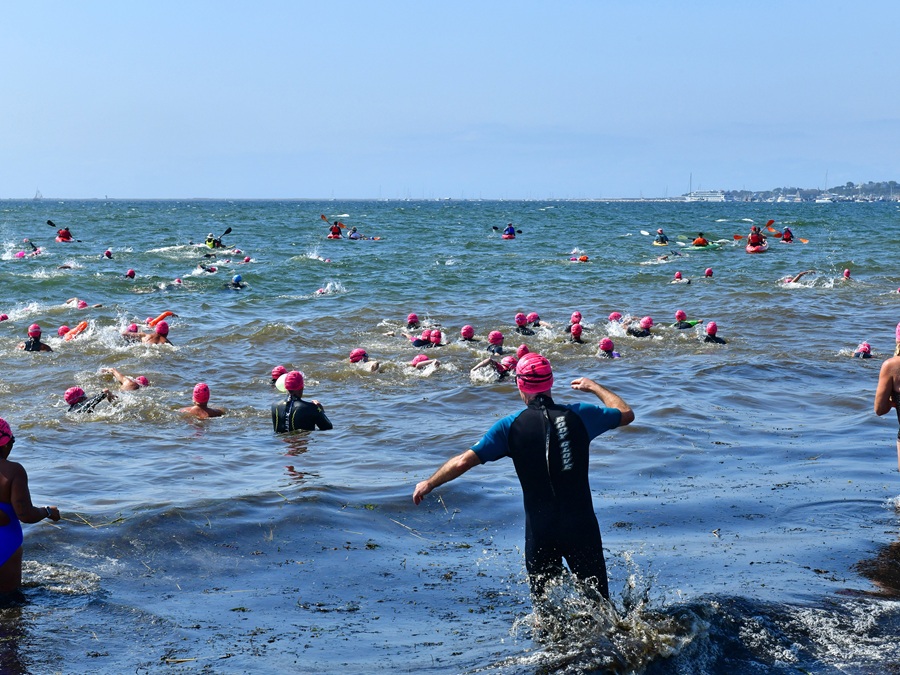
As I got my breath regulated, my thoughts fragmented. I daydreamed of my home in Milwaukee and Lake Michigan, a lake so vast it looks like a sea, but one that only rarely has the ocean’s malice. I wondered if the person who I’d accidentally kicked during the initial mad dash was OK. I pondered the public’s contempt for Rosie Ruiz, the marathon runner who allegedly cheated by taking the New York City subway to the finish line in 1979. I registered that I was about to swim into a large rock and then an anchored boat, barely averting collisions.
Then I heard the cheers of the spectators at the finish line. A volunteer wrote down my time and tested me for signs of hypothermia. I passed, though my legs did feel unsteady beneath me.
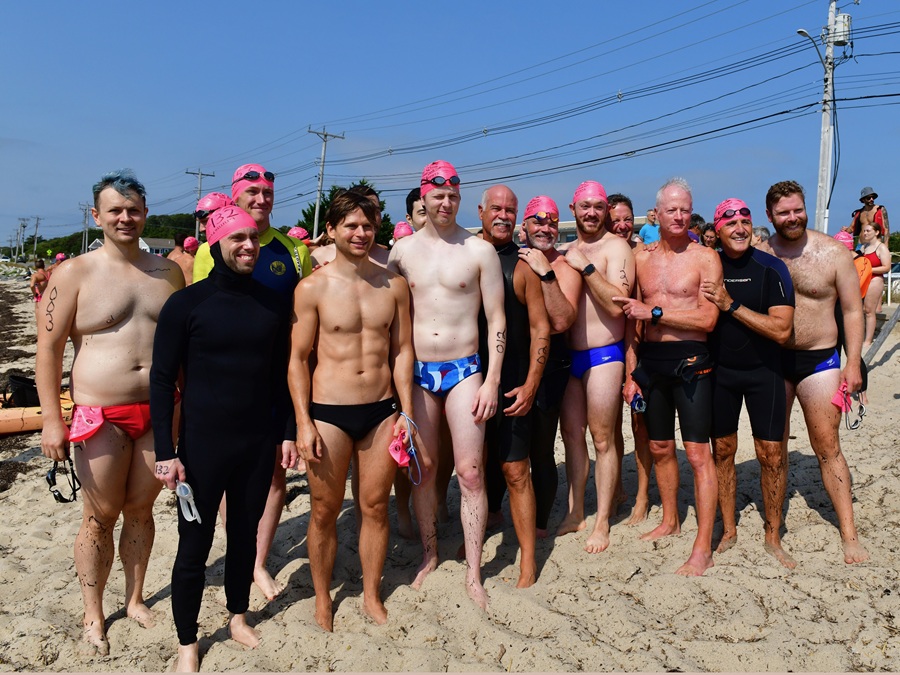
Later I looked up the conditions between 11 a.m. and noon. When the race started, the wind was blowing at more than 20 m.p.h., according to localconditions.com. Gusts of up to 46 m.p.h. were recorded.
Critchley told the Independent that 359 swimmers braved the strong winds coming out of the southwest on Saturday, with 55 of them at Great Pond in Wellfleet. There were also 42 kayaks in the flotilla. But their efforts out of the water were really what was worth celebrating — the event raised $358,000 for 13 local nonprofits, including the AIDS Support Group of Cape Cod, Helping Our Women, and Outer Cape Health Services.



